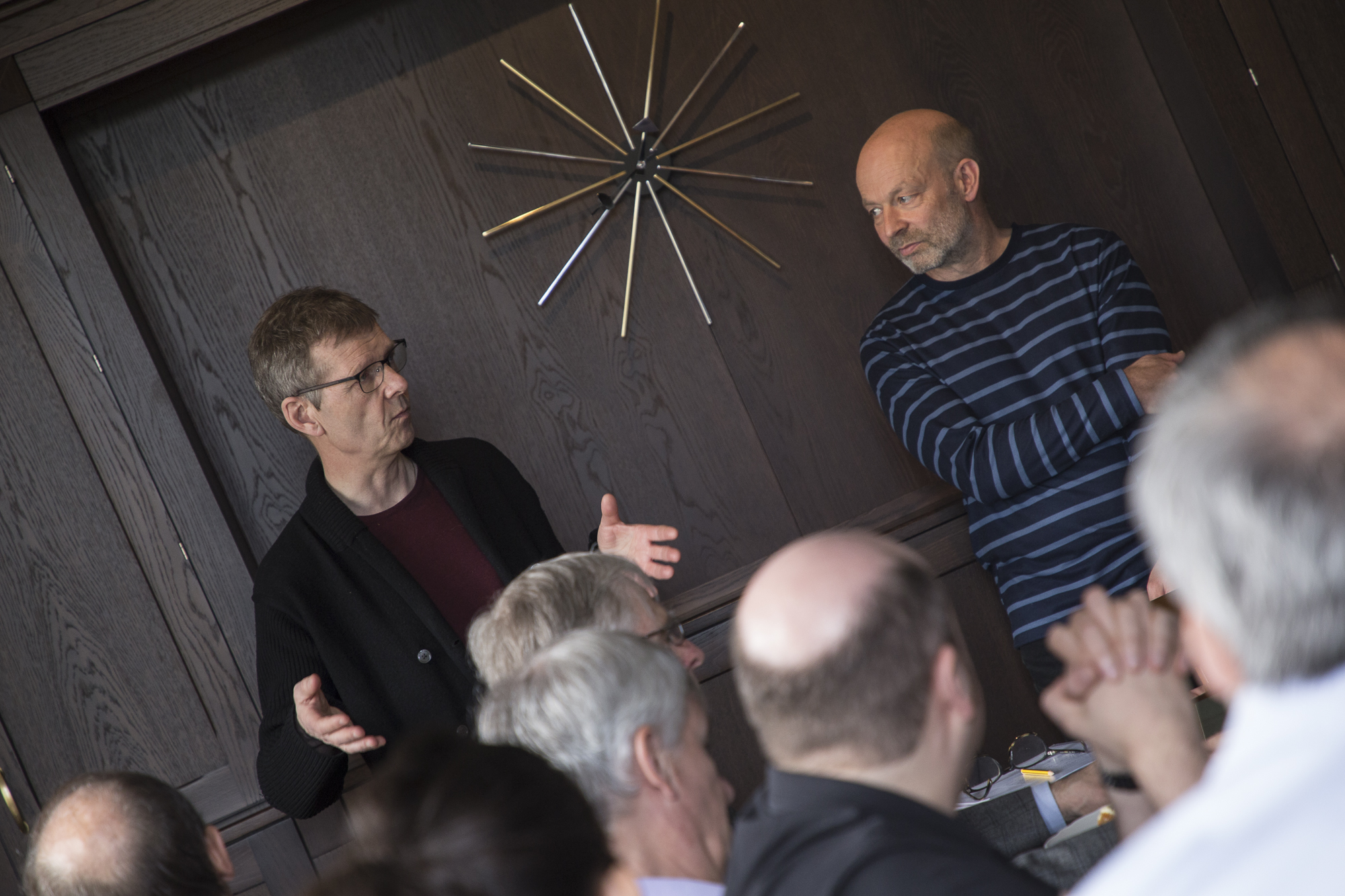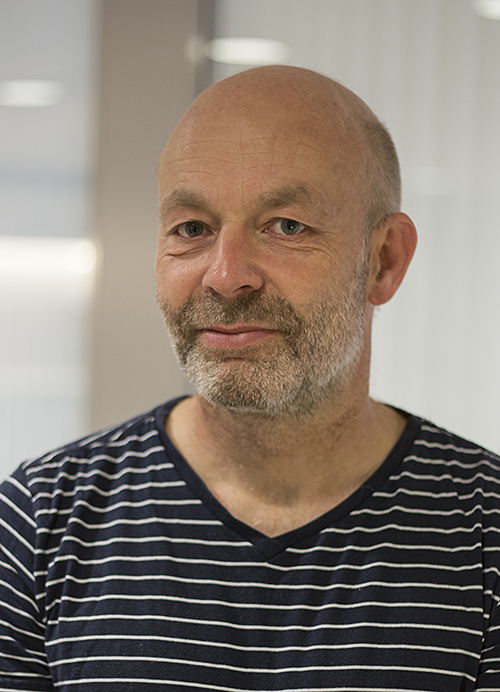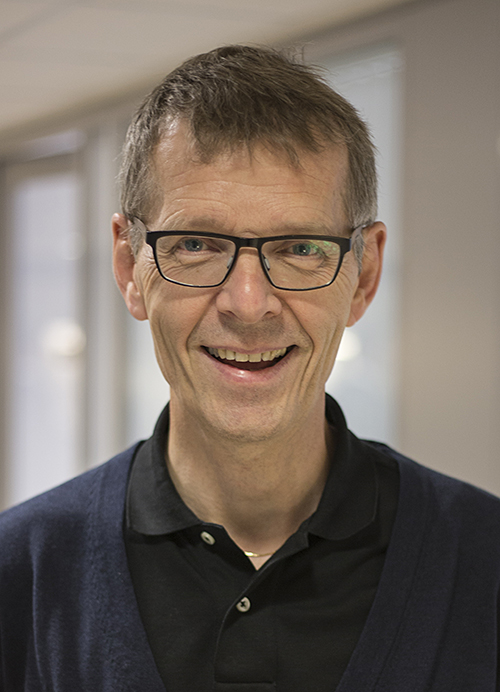Research in Review: 'The Nordic "Civil Wars" in the High Middle Ages in a Comparative Perspective'

The 2017/18 academic year is coming to a close. After a year at CAS, the fellows are preparing to return to their home institutions and build on the research that began at the Centre.
We sat down with CAS project leaders Hans Jacob Orning and Jón Viðar Sigurðsson, professors of history at the University of Oslo (UiO), for an exit interview on the project The Nordic 'Civil Wars' in the High Middle Ages in a Comparative Perspective.
The Nordic 'Civil Wars' in the High Middle Ages in a Comparative Perspective was a comparative project that drew on the expertise of scholars of different time periods and academic disciplines. Participating fellows compared both medieval and modern conflicts, as well as conflicts in medieval Scandinavia to others taking place across the continent at the time.
The project will produce at least two books: one, a collection of essays that compare medieval civil wars to modern conflicts; the other, a comparison of the civil wars across medieval Europe from different perspectives other than the nationalistic one from which those conflicts are often examined. The fellows focused on the former book during the fall semester and the latter this spring.
Those books, as well as conferences proceedings from two conferences on civil wars, will be published in the near future.
Their project's state at the end of the year largely corresponds to where the two historians hoped they would be when they wrote the project abstract years ago.
‘The main goal of the project is to write two books on Nordic civil wars in a European context incorporating a cross-disciplinary approach,’ Orning and Sigurðsson wrote then.
Yet in their interview, Orning and Sigurðsson talked about how their project changed along the way, about discarding original ideas, and about successfully manoeuvring through a chaotic phase.
How did the year at CAS play out? Read on!
Read all our coverage of The Nordic 'Civil Wars' in the High Middle Ages in a Comparative Perspective here.
'I’ve never done anything like this before.'
- Stephen D. White, the Asa G. Candler Professor Emeritus of Medieval History at Emory University, on his stay at CAS.
Read the full in-depth interview here.
Q&A - Hans Jacob Orning and Jón Viðar Sigurðsson
- How would you summarise your year at CAS?

Jón Viðar Sigurðsson: When we created the master plans for this stay, we did a lot of thinking about what we hoped to accomplish, but when we started discussing things with different fellows and guests, it was obvious that things needed to be adjusted, and that there were things we had missed that needed to be part of the equation. All these conversations led to a significantly more dynamic project. And I’d say our results are fairly interesting.
It’s been great to have gotten this opportunity to sit here for two semesters and work intensely on a topic and research questions that we really care about. It’s been incredibly exciting to invite people to talk to us and collaborate with us. CAS has actually been the sole reason that we have been able to work on this project. Without a year at CAS, we never would have gotten close to the two books we’re working on now.
- How different were the two ‘semesters’? Was one more challenging than the other?

We know the medieval historians well and have collaborated with them for a decade, but it’s something completely different to sit together in the same location. With other book projects, what you do is you start writing what you know and then combine it with someone else’s work. Here, you bring your own knowledge, and then you get the opportunity to develop something brand new because of the expertise that the others bring.
Everyone thinks being here is just great. You’re overwhelmed by the premises, the opportunities, by all the assistance you get. It’s actually a little like living in the Middle Ages as a nobleman -- a kind of unreal situation where everything is taken care of.
- How has your time at CAS lined up with your expectations? Did you run into any surprises?
Orning: I expected going into the stay that I’d get a break from lecturing, from travelling, from all kinds of interruptions -- that we were just going to sit here. The stay has been great, but it’s been incredibly intense. It’s been a combination of laying siege and being under siege.
What’s been great about our project is that we’ve had some clear goals along the way. We knew that the fall semester would result in an anthology, and we know the spring is going to result in a different book.
Sigurðsson: We’re very used to dealing with deadlines. If your project isn’t facing a deadline, it’s easy for things to get out of hand. You have to have that pressure.
Orning: But what’s different from how we normally work is that we allowed ourselves a few months in which we didn’t have to write. That was the deciding factor, that we got enough time to attempt something new.
- What are your plans for this project this fall and beyond?
Orning: We know from previous CAS projects that it can be scary when you’re not finished by the time you leave one another. That golden opportunity is past. But we have made a conscious decision that this does not end here. We’ve made plans to keep going not just mentally -- we’re not planning any major projects this coming year -- but also concretely, making sure to set aside time and funding. In that sense, this project is not concluded.